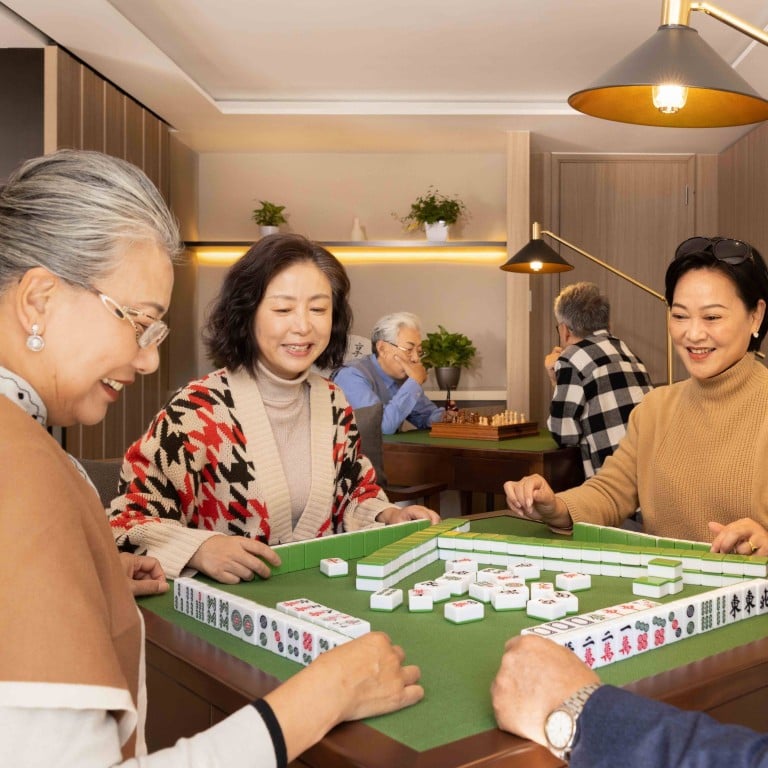Why retirement homes are starting to look like 5-star hotels: flush seniors are splashing out on expensive luxury residences that include spas, bars, cinemas and personal trainers

- Auriens, a new later living project in London’s Chelsea, has a gym and spa, personal trainers, nutritionists and age-appropriate exercise, lifestyle and nutrition programmes
- Sunrise in New York City’s prestigious Upper East Side neighbourhood includes top dining options, a beauty salon, wellness suite, art studio and theatre
At 6pm on a Friday, Mary Baxter changes into heels, and reapplies her lipstick.
At the end of another working week in London, she’ll catch up with friends at a wine bar, followed by a shared dinner, and maybe a movie.
The only difference is that for this 60-something retiree, her night on the town will be a night in. As a resident of Auriens, a new later living project on King’s Road, Chelsea, all the most-wanted amenities for a chic urban lifestyle are provided right on site.
The opening of Auriens, offering the over-65 occupants of its 56 private apartments services and amenities worthy of a five-star hotel, reflects a trend emerging around the world.
Making the most of their wealth

With people living longer, the well-to-do are demanding more than the humble offerings of the retirement villages of yore. According to a February 2022 report by Savills, most people moving into retirement housing are downsizers – and they have money to spend.
Able to get a foot on the property ladder much earlier than today’s generations, and having benefited from house price growth over the years, the over-65s possess substantial equity in their residential real estate. In England and Wales, the value of homes owned by that age group totals nearly £2.0 trillion (US$2.6 trillion), 37 per cent of which is in London and the southeast.
David Meagher, Auriens CEO, says the concept behind the Auriens project is to “smash many of the preconceptions around ageing and retirement”.
“We see this as a time to live life at your own pace,” he explains. “When people reach their 60s and 70s, many have travelled the world, lived well, and see no reason to compromise. However, issues such as security, healthcare and convenience become increasingly important, with many therefore looking to downsize.”